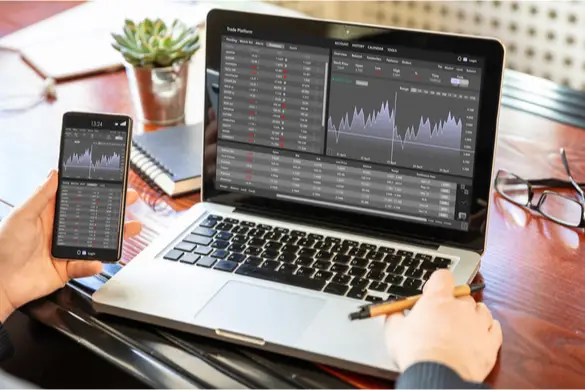
There are several steps to opening a futures trading account. Futures are financial transactions requiring investors to buy or sell at specified prices and predetermined dates. These accounts typically offer significant gains and accessibility to experienced investors. Often, trading futures effectively requires less upfront capital than simple day trading. As an experienced investor, you should use your broker’s services, platforms, and datafeeds to research your trades and exit points. In this post, we’ll discuss how to open a futures trading account.
Meet CFTC Requirements
Meeting requirements set by the Commodity Futures Trading Commission (CFTC) is the first step to opening a futures account. The CFTC requires brokerage firms know their users’ annual income/net worth, age, and previous trading experience. Additionally, depending on the broker and best brokerage accounts type, they need to know your employment and marital status. Moreover, most firms ask for completed W-9s as well as proof of identification and address. Surely, ensure your futures trading eligibility by meeting these CFTC requirements.
Research Prospective Firms
Second, research prospective futures trading brokerage firms and evaluate their fit for your specific needs. For example, you may want trading assistance from your broker, or self-directed trading by yourself. Alternatively, you may want a combination of both. Next, compare the various brokerage and trading fees, as well as the number of available futures to trade. Lastly, consider the minimum balance and margin requirements of firms you are interested in. Absolutely, ensure your partnership with the best futures broker for your trading account needs by researching firms.
Contact Futures Broker
Contacting your chosen futures broker is the third step in opening an account. You need an account with a registered futures broker or online stock brokers to start trading. These brokers are often called futures commission merchants (FCM) or introducing brokers (IB). They maintain your account, and guarantee your trades with their capital. Additionally, many securities brokers also deal in futures. Additionally, depending on your chosen broker, you gain access to various tools that enhance your futures market understanding. For example, price action alerts and liquidity tools highlight opportunities and trends across several asset classes. Certainly, expand your knowledge of futures trading by partnering with the best broker for your needs.
Determine Trading Strategies
Next, develop a futures trading strategy to maintain your account’s value. Build your strategy using fundamental or technical analysis and insights. Technical analysis focuses on quantitative statistics such as price histories and volume. Fundamental analysis measures investment value using financial and economic data. Data from the Federal Reserve is also used in fundamental futures analysis. Most traders use the advantages of both analyses by developing strategies that combine them. Additionally, your broker may have robust tools for fundamental and technical analysis, as well as idea generation. Definitely, combine several types of data analyses to determine a crucial trading strategy.
Fund Trading Account
Lastly, funding your new futures trading account is the final step in opening one. Of course, you cannot start trading unless there is money in your account. Make a deposit to secure your futures trading margins. This way, you can physically trade futures contracts. Many brokers offer several convenient deposit options such as cashier’s check, ACH payments, and wire transfers. However, transaction fees and processing times vary from broker to broker. Of course, provide the capital for trading futures by funding your new account.
Opening a new futures trading account can be done in a myriad of ways. For example, start with ensuring your futures trading eligibility by meeting these CFTC requirements. Second, ensure your partnership with the best futures broker for your trading account needs by researching firms. Third, expand your knowledge of futures trading by partnering with the best broker for your needs. Next, combine several types of data analyses to determine a crucial trading strategy. Finally, provide the capital for trading futures by funding your new account. When searching for how to open a futures trading account, consider the steps described above.
 Business First Family Business, Accounting, Finance, Investing, Marketing And Management
Business First Family Business, Accounting, Finance, Investing, Marketing And Management